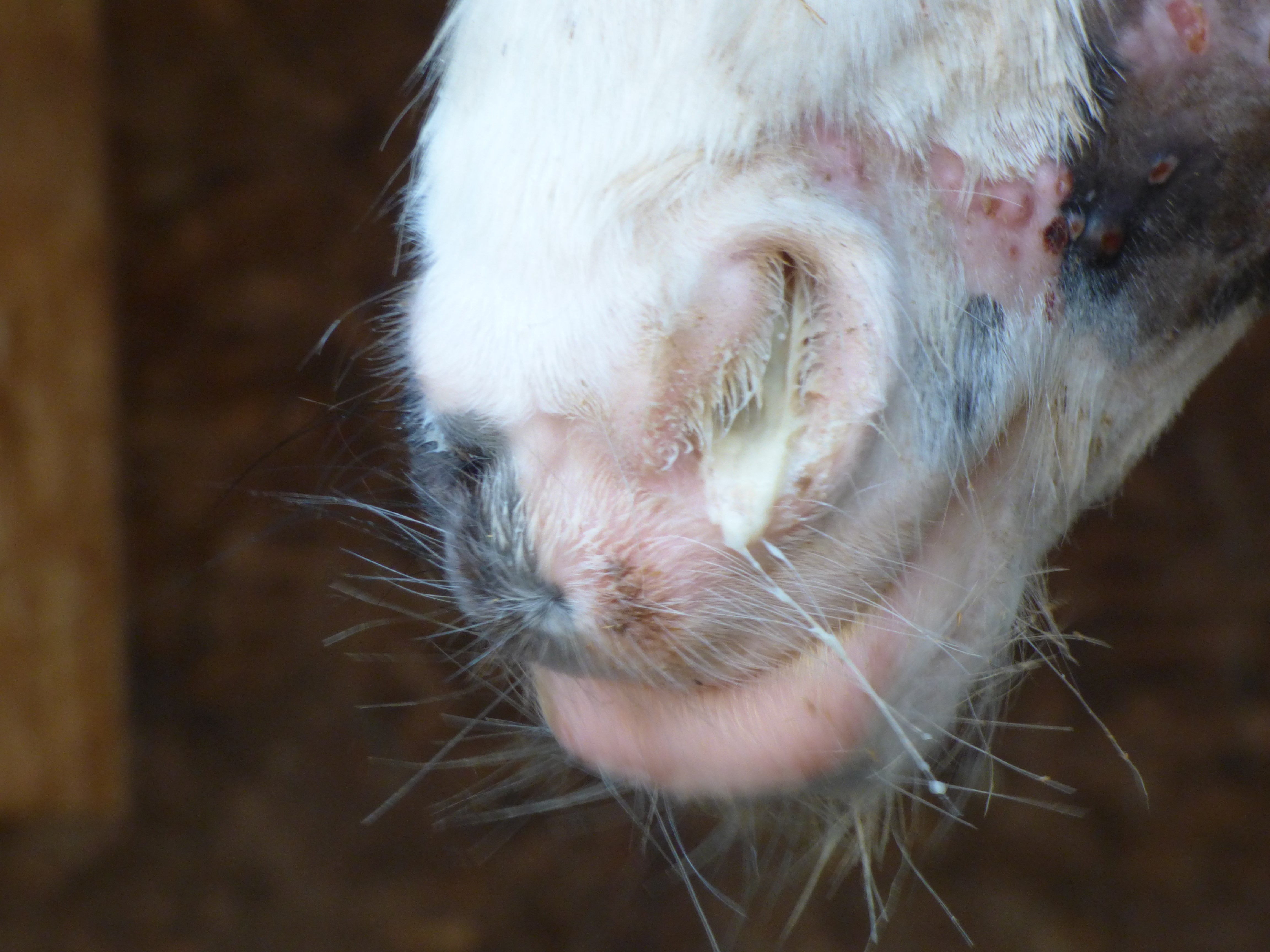New genomic study by the RVC reveals key drivers of strangles transmission in UK horses
A novel study by the Royal Veterinary College (RVC) has revealed new insights into how the highly contagious disease strangles spreads amongst horses in the UK. This research marks a significant step forward in understanding how owners and veterinarians can more effectively manage and prevent outbreaks of this devastating equine disease, through targeted interventions and outbreak management protocols.

Strangles is a highly contagious and potentially life-threatening upper respiratory tract infection caused by the bacterium Streptococcus equi (S. equi), which can affect horses, ponies and donkeys of all breeds and ages. With approximately 300 laboratory-confirmed cases reported in the UK each year, and many more likely undiagnosed, strangles continues to pose serious welfare and financial risks to the equine industry.
Seeking to strengthen understanding of the disease’s transmission, particularly the relative contribution of short-term (immediately post infection) versus long-term carriers (carriers that were infected months or years prior), researchers from the RVC, the University of Cambridge, the Swedish University of Agricultural Sciences and Redwings Horse Sanctuary, analysed more than 500 S. equi samples from across the UK between 2016 and 2022. These samples were collected from clinical cases sent to diagnostic laboratories by veterinary surgeons seeking confirmation of infection. Surplus samples were submitted to the Surveillance of Equine Strangles network and then cultured in the RVC’s research laboratory and their DNA extracted and sequenced to reveal each bacterium’s complete genetic code.
Adopting a novel approach that combined whole genome sequencing and epidemiological data, the researchers were able to trace how strains are related and have evolved. With the use of computer programmes, they also tracked how genetically related strains spread between horses and across regions, over time. Critically, by adopting this approach, the team was able to pinpoint likely transmission events and chains of infection.
Analysing these transmission dynamics, key findings of the study revealed:
- A significant and rapid change in the equi population structure in the UK between 2016 and 2022, suggesting that, contrary to previous assumptions, acutely infected or recently convalesced short-term carrier horses play a more influential role in transmission than long-term carriers.
- Frequent transmission across different UK regions, with nearly two-thirds of identified transmission pairs occurring between horses from different UK regions, and a significant transmission chain observed spanning large distances across the UK over a six-month period, involving horses from England, Scotland, Wales and Northern Ireland. This highlights the national and international importance of horse movements in spreading the disease.
- Most detected equi infections were transmitted from horses with overt clinical signs or those recently convalescing, underscoring the critical need for greater awareness and adoption of post-outbreak screening protocols to confirm freedom of infection, rather than solely the resolution of clinical signs.
Funded by the Horse Trust, and building on previous RVC research into the disease, these findings have far-reaching implications for how veterinarians and horse owners manage outbreaks. The research highlights the need for early diagnosis, isolation and laboratory-confirmed clearance, particularly through guttural pouch testing, before assuming a horse is infection-free. It also advocates for tighter biosecurity and movement protocols, especially when transporting horses across regions.
Dr Abigail McGlennon, former PhD student in the Department of Pathobiology and Population Sciences at the RVC, and lead author of the paper, said:
“Strangles is a challenging and distressing disease for horses, owners, yards and vets, and this work has highlighted just how easily it can be spread across the UK in a short period of time.
“This study shows how important enhanced surveillance utilising epidemiological and genomic data is to investigate and understand strangles transmission across the UK. Our data highlights the importance of greater awareness and adoption of post-outbreak screening protocols to confirm freedom from infection, rather than owners assuming recovery based on the resolution of clinical signs.”
Nic de Brauwere, Head of Welfare and Behaviour at Redwings Horse Sanctuary and co-author of the paper, said:
“This research, and the publication of this paper, have advanced our knowledge around strangles transmission significantly. It is so rewarding when high level research is able to have real-world relevance, and bring immediate potential benefits to equine health. Owners, yards and vets can improve how they focus their screening efforts on the highest risk situations based on sound evidence, making the best use of limited resources whilst having a direct impact on the spread of infection to new susceptible equines.”
Notes to Editors
The RVC has an Equine Practice and Equine Referral Hospital which combines world-leading research with the largest number of RCVS equine specialists.
For more information, visit: https://www.rvc.ac.uk/equine-vet
Reference
McGlennon AA, Verheyen KL, Newton JR, van Tonder A, Wilson H, Parkhill J, et al. Unwelcome neighbours: Tracking the transmission of Streptococcus equi in the United Kingdom horse population. Equine Vet J. 2025. https://doi.org/10.1111/evj.14558
The full paper can be viewed at: https://doi.org/10.1111/evj.14558
For more information please contact:
- rvc@plmr.co.uk
- Press Line: 0800 368 9520
About the RVC
- The Royal Veterinary College (RVC) is the UK's largest and longest established independent veterinary school and is a Member Institution of the University of London.
- It is one of the few veterinary schools in the world that hold accreditations from the RCVS in the UK (with associated recognition from the AVBC for Australasia, the VCI for Ireland and the SAVC for South Africa), the EAEVE in the EU, and AVMA (probationary) in the USA and Canada.
- The RVC is ranked as the top veterinary school in the world in the QS World University Rankings by subject, 2025.
- The RVC offers undergraduate and postgraduate programmes in veterinary medicine, veterinary nursing and biological sciences.
- The RVC is a research-led institution, with 88% of its research rated as internationally excellent or world class in the Research Excellence Framework 2021.
- The RVC provides animal owners and the veterinary profession with access to expert veterinary care and advice through its teaching hospitals and first opinion practices in London and Hertfordshire.
